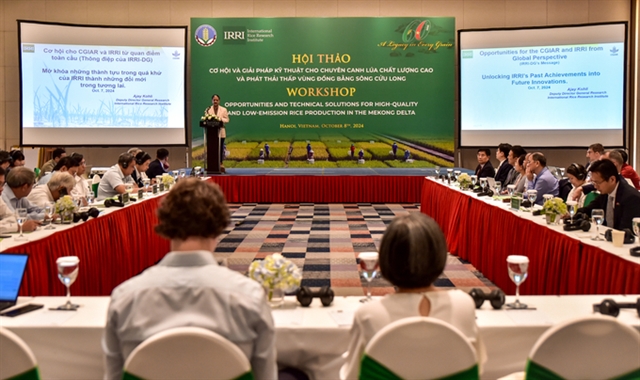 Society
Society

 |
| Prime Minister Phạm Minh Chính speaks at the event. — VNA/VNS Photo |
CẦN THƠ — Prime Minister Phạm Minh Chính chaired a conference in the Mekong Delta city of Cần Thơ on October 15 to discuss solutions to a project on sustainable development of one million hectares of high-quality, low-emission rice cultivation associated with green growth in the Mekong Delta by 2030, which was launched in November 2023.
In his speech, the PM described rice as a key strategic commodity of Việt Nam. Rice production, he stressed, is not just about ensuring national food security and social stability; it is a lifeline for millions of farming households and a major driver of exports. Moreover, it plays a critical role in global food security and enhances Việt Nam's international reputation.
The project is of paramount significance for regional farmers, rice industry, and Việt Nam's broader efforts to combat climate change, aiming for net-zero emissions in line with commitments made at the 26th United Nations Climate Change Conference of the Parties (COP26), he said.
The Ministry of Agriculture and Rural Development (MARD), in collaboration with 12 regional provinces, has carried out this project, already achieving notable initial results.
Chính called on relevant ministries, particularly the MARD and local authorities, to submit detailed reports on the project's implementation, highlighting any obstacles faced and proposing solutions to overcome them.
After nearly a year of concerted efforts, ministries, agencies and local authorities have issued legal documents to support the project, selected and established areas for involvement, and applied technical packages that meet sustainability criteria. Training courses have been offered to reorganise production and strengthen value chain connectivity, among others. — VNS